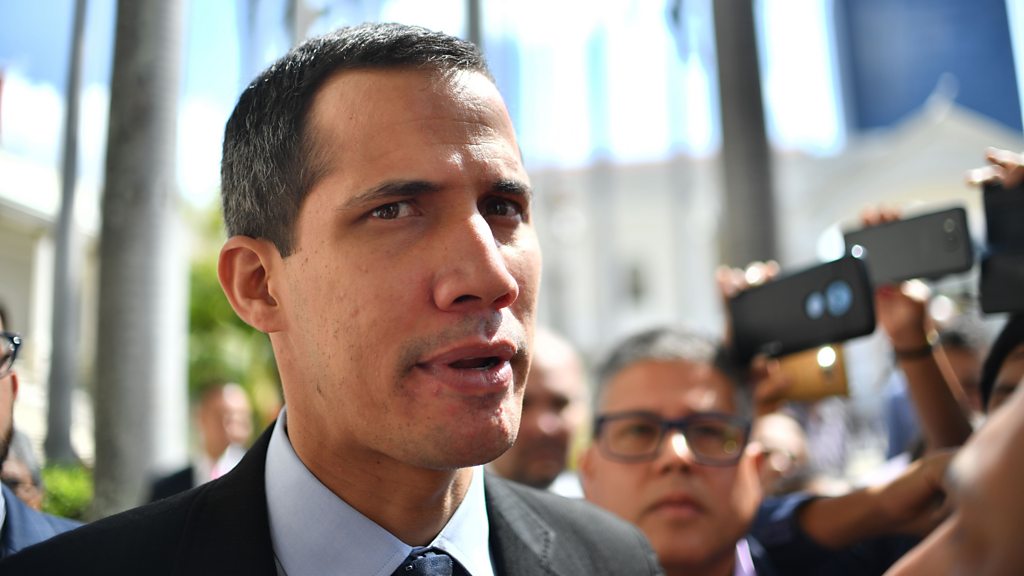Venezuela top court curbs opposition leader Juan Guaidó

The move comes amid an escalating power struggle, after Mr Guaidó declared himself interim president last week.
He has been backed by the US and other countries. President Nicolás Maduro has major allies too, including Russia.
Mr Maduro said in an interview that he was prepared to hold negotiations with the opposition.
"I am ready to sit down at the negotiating table with the opposition so that we could talk for the good of Venezuela," he told the Russian state news agency RIA Novosti in Caracas.
Mr Maduro ruled out an early presidential election - saying the next one was not due until 2025 - but said he would support early parliamentary elections as "a good form of political discussion".
On Saturday, the European Union gave President Maduro an ultimatum to call elections within eight days, or the bloc would recognise Mr Guaido as president.
The opposition has asked supporters to take part in a two-hour peaceful protest on Wednesday. It is as yet unclear if Mr Guaidó will attend.
A group of North and South American countries has meanwhile opposed any outside military involvement in the country.
Peru's Foreign Minister Nestor Popolizio said the Lima Group - a 14-country body including Canada set up in 2017 to find a peaceful solution to the crisis in Venezuela - was opposed to "military intervention".
US officials have stated that all options to resolve the crisis "are on the table".
Venezuela has been facing acute economic problems and there has been an upsurge in violence in recent weeks.
Protests have been held across the country since Mr Maduro began his second term on 10 January. He was elected last year during a controversial vote in which many opposition candidates were barred from running, or jailed.
At least 40 people are believed to have died and hundreds have been arrested since 21 January, the UN says.
Hyperinflation and shortages of essentials such as food and medicine have forced millions to flee the nation.





Post a Comment